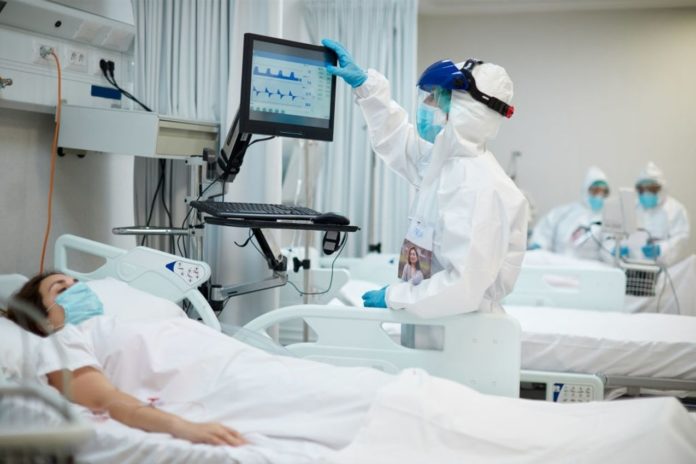Patients with severe COVID-19 have one thing in common: inadequate or faulty type I interferon proteins, which help control the immune system (IFNs).
Two previous articles from Jean-Laurent Casanova’s research indicated that at least 10% of severe cases can be attributed to either a genetic defect that impairs IFN production or misguided antibodies that attack those critical proteins.
Now, two recent papers published in Science Immunology from the Casanova lab describe how another 10 percent of severe cases are also linked to IFN.
“We can neatly explain much of severe COVID-19 as a net defect in type I IFN,” Casanova says.
“To an extent never seen for any other acute infectious disease, these four studies collectively provide a molecular and immunological explanation for about 20 percent of critical cases.”
The new findings reveal additional IFN-related abnormalities that are only found in severe and fatal COVID-19 cases. Casanova and colleagues discovered that 1 to 2% of males under the age of 60 who have severe COVID-19 have detrimental mutations in TLR7, a gene on the X chromosome involved in the generation of type I IFN.
The second study found that confused antibodies attacking type I IFNs rather than the virus account for a higher number of severe cases than previously thought—20 percent of COVID-19 deaths had high levels of autoantibodies that particularly target and destroy IFNs.
These autoantibodies are detectable even in people who are not infected with COVID-19, implying that they are a cause rather than a result of the disease. While they affect just approximately 0.5 percent of those under the age of 60, the figure jumps to 4 percent at 70 and up to 7 percent by 85.
These results, which are the result of a partnership between the COVID Human Genetic Effort, an international global group co-led by Casanova, have direct clinical consequences.
Because testing for autoantibodies is simple and inexpensive, Casanova and his colleagues suggest screening to identify those who are at high risk of serious illness.
Individuals who test positive for autoantibodies should be given priority vaccinations, including a third booster injection. If they contract COVID-19, such high-risk patients should be hospitalised and treated with monoclonal antibodies or interferons.
The researchers also advise that blood plasma donations be checked for autoantibodies and avoided if they include proteins capable of damaging IFNs.
Image Credit: iStock
